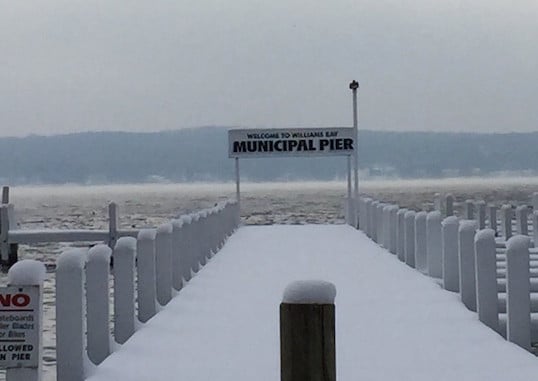Tis the season for dreading the mail. There’s something nice about the season, relating to the mail, I suppose. Each day, my mailbox is full to overflowing. Will there be Christmas cards? Or will there only be pamphlets and magazines, newsletters and postcards, each hailing from a company that I’ve likely never heard of, telling me how their luggage, their sweater, their ski jacket, their fly rod, is indeed the thing that I never knew I needed. There’s more junk mail than ever, and it doesn’t bother me. But weed through that mail carefully because there’s a special Christmas surprise waiting for you: Your property tax bill.
If you’re lucky enough to own property in the Village of Williams Bay you’ll be happy to see a 6.5% average increase in that property tax bill. That, in an of itself, isn’t a tremendously difficult situation. It’s just some money, really. On average, I’d guess houses in the village have appreciated similar to that rate over the past year, which makes the tax increase easier to swallow. Plus, the state just voted for Tony Evers to be Governor, so obviously low-ish property taxes are not something that people really care about. Add to that the fact that any municipal spending bill on the November ballot passed, and you’ve got a populace that has sent one clear message to their town boards and capital building: Tax Us, Please.
Contrary to what you’re thinking, this isn’t a post about politics. It’s a post about taxes, and about a specific lie that municipalities repeatedly tell their citizens. Recently, the lie was told to get spending referendums across the state passed. It’s a lie told whenever a developer sets up an easel and turns the page to the first colorized map of a new, shiny development. It’s the lie the aldermen and trustees tell each other when they huddle in secret, or when they debate a proposed development with their community. The lie is complex but so very simple. If we add more residents, we’ll add more people to help pay for the burden of local government, and our taxes will go down.
If you’ve driven around Williams Bay lately, you’ve noticed a construction boom, of sorts. Along our lakefront, at least four new homes were added, with presumably, fat tax bills. But that growth pales when compared to the growth along the Theatre Road corridor. This is where the growth has been, and this is where the growth makes some sense. These are primary homes, close to the fancy-paints new school, in neighborhoods where kids can ride their bikes and parents can enjoy their own version of small-town living. These neighborhoods sat relatively dormant over the past decade, but have been firing on all cylinders over the past 18-24 months. I confirmed with the village that there were 31 new home permits issued in 2018, with perhaps two more to be issued between now and January 1st. That’s 31 new homes, paying an average of $4000+ in property taxes each. In an area where growth was once nonexistent. The village coffers should be overflowing with revenue.
But show me what that does for the town. Show me a tangible difference in a town that has growth and a town that doesn’t. In our downtown, we still have a vacant lot rotting on the marquee corner. We have For Rent signs keeping pace with Open signs. We have the same crappy Christmas decorations strung from our telephone poles. Tell me, exactly, what this growth has done to benefit the community? Along those lines, with this growth, shouldn’t our property taxes be kept in check? Isn’t that the sales pitch? Grow or die, they say. We need more tax-payers to shoulder the municipal burden. This is the pitch you’ve been led to believe, but the results are in. Growth doesn’t mean your taxes go down, it just means your expenses go up. Merry Christmas from the Village of Williams Bay. Now don’t forget to check your mail.

